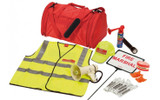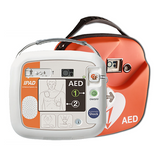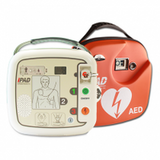Blog
Are You Taking Fire Safety Seriously?
Fire risks and the workplaceFire can have a huge impact on a business economically and morally. As a business you have a moral obligation to protect your employees as well as your stock, buildings and equipment. Protecting your premises of work is vital, especially for businesses that operate from a single location. Trading following a serious fire is sometimes too expensive for a business of this sort. That is why prevention and preparation are key. Any organisation can be affected at any time;
…
14th Oct 2017
Facts About Cardiac Arrests That Could Save a Life
Cardiac arrests are seen as one of the biggest cause of deaths worldwide. In the U.K alone 140,00 die on average as a result of a cardiac arrest each year. Yet, with the help of a defibrillator, you are 75% more likely to survive. So why aren’t we doing something about it?A cardiac arrest occurs when the victim's blood stops circulating properly as a result of the heart beating abnormally. They can happen to anyone, at any time and at any age. You do not need to have previous heart problems.Chan
…
7th Oct 2017
Save lives with help from CPR training manikins
CPR manikins are crucial in giving learners a real-life experience that helps them utilise training in a safe environment.CPR or cardiopulmonary resuscitation is vital in limiting any long-term damage to the brain the moments up to medical attention is available. With the use of lifelike manikins you can gain the confidence and the experience to help save lives. When used correctly CPR increases survival rates of victims by 40%. In fact, each minute that treatment is delayed decreases chances of
…
5th Oct 2017
HSE to revise the Emergency First Aid and First Aid at Work syllabuses
In October 2015 changes took place with the Resuscitation Council guidelines on cardiopulmonary resuscitation (CPR). This led to the HSE needing to review Emergency First Aid and First Aid at Work Syllabuses. All first aiders will now need to be trained in the use of automated external defibrillators (AED) from the 31st of December 2016, as the Resuscitation Council UK now state that the management of a casualty requiring CPR is to request an AED.For people who deliver FAW or EFAW training, the
…
15th Aug 2016
Defibrillators & CPR Training in Public Places & Schools
In March last year the government announced a £1m of additional funds to provide defibrillators in public places.Provided by the Department of health it is intended to act as an incentive to purchase and train people in the use of defibrillators.The British Heart Foundation stated there are over 30,000 cardiac arrests outside of hospital and only 1 in 10 survive.By being able to call 999, perform CPR and having use of a public defibrillator you can save lives.If you require advice on your specif
…
15th Aug 2016





